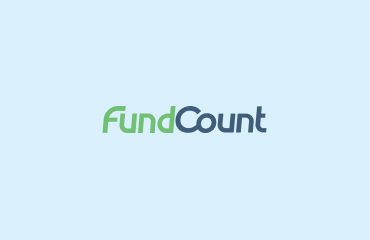Software that meets Reporting Objectives
Family offices oversee family money, with the ultimate goal of growing assets and meeting their financial requirements in the short and long term. To accomplish this, family offices must keep accurate financial and accounting records and generate reports for both official uses, such as taxes, and for internal use, such as informing family members about their wealth. The back-office accounting and reporting software chosen by a given family office is critical to achieving these objectives. Depending on whether or not it meets the family’s criteria, it can either make or break the operation.

Essential Requirements for Family Office Reporting and Accounting
One of the most important needs for a family office’s accounting and reporting system is the ability to incorporate partnership accounting/reporting as well as portfolio accounting and performance reporting into a single system. A family office calculates the shares or segments of the family’s total wealth owned by specific people or companies within the family using partnership accounting/reporting. Portfolio accounting and performance reporting software, on the other hand, gives precise information on how the family’s assets are performing, including the instruments, currencies, securities, and any other investment vehicles in which it is invested.
The integration of these capabilities into a single system enables the family office to manage all areas of the family’s wealth in one location, providing a comprehensive perspective of their financial condition. This is critical for making educated decisions and managing the family’s assets properly.
Detailed Analysis of Family Office Reporting and Accounting Requirements
Below, we will look in depth at these criteria, providing useful insights into the capabilities required for effective back-office management in a family office. We will go over the significance of partnership accounting/reporting, portfolio accounting, and performance reporting, as well as other critical aspects that a back-office accounting and reporting system must have in order to suit the demands of a family office:
- Support Multi-asset class: The system must natively support any financial instruments, including marketable securities such as stocks, bonds, and derivatives, as well as non-marketable assets such as private equity, real estate, yachts, and aircrafts. If the system does not support any of the asset classes that the family is investing in, part of the accounting must be kept either in other systems or in Excel, which can lead to errors when manually consolidating data.
- Integration with market data sources: The system must be able to integrate with custodians and brokers to receive information about the actual ownership of marketable securities.
- Reconciliation: The system must provide reconciliation capabilities to search for inconsistencies and correct them in automatic or manual mode.
- Flexible portfolio reporting: The system should support deep yet easy customization of reports without the need for programming. It should also be able to provide data to external reporting systems such as Tableau or Power BI.
- Tax reporting: The system should be able to calculate taxes and generate tax reports. It is important that the vendor follows the requirements of tax authorities such as the IRS and updates their reports accordingly.
- Accounts Payable module: The system should have an Accounts Payable module to keep track of expenses and support workflows for approving payments.
- Investment compliance: The system must check that the portfolio complies with any investment rules set by the family or its members and warn when there are violations.
- Personal control: Many FOs prefer to have the system under their personal control on their own servers because they do not trust information from third parties.
A Solution for Family Office Reporting and Accounting
FundCount is a back-office accounting and reporting solution that unifies portfolio accounting and reporting into a single general ledger. This integration gives a complete picture of a family’s wealth. The solution is intended to simplify difficult processes through an easy-to-use system, boost efficiency through automation, and provide flexibility in how investments are viewed.
The back-office accounting and reporting software chosen by a given family office is critical to achieving these objectives. Depending on whether or not it meets the family’s criteria, it can either make or break the operation.
The Importance of Meeting Family Office Reporting and Accounting Requirements
The bottom line is family offices have special needs for back-office accounting and reporting systems. These prerequisites include the capacity to manage complicated ownership structures and many asset classes while offering real-time portfolio reporting. A versatile, self-service reporting system that enables them to swiftly build, customize, and deliver consolidated reports is also required.
Family offices can benefit from a sophisticated and dependable back-office accounting and reporting system provided by a vendor dedicated to client care and offering global support. A back-office accounting and reporting solution that meets these needs can successfully support the administration of a family’s wealth.







